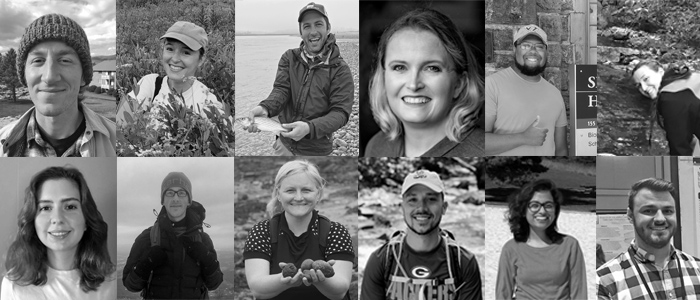[vc_row][vc_column][vc_column_text]
Meet our newest faculty affiliates:
[/vc_column_text][/vc_column][/vc_row][vc_row][vc_column width=”1/3″][vc_single_image image=”54290″ img_size=”250×250″ alignment=”center” style=”vc_box_shadow_3d”][/vc_column][vc_column width=”2/3″][vc_column_text]
Dr. Wendy Parker
Professor, Philosophy
Dr. Parker’s research focuses on topics in general philosophy of science and philosophy of climate science/meteorology. She is interested in how scientists have developed evidence that global climate change is occurring and is anthropogenic and, especially, in the role of computational modeling in this regard. She is a contributing author for Working Group I’s contribution to the Intergovernmental Panel on Climate Change (IPCC) 6th Assessment Report and a member of the US CLIVAR Ocean Uncertainty Quantification Working Group.[/vc_column_text][/vc_column][/vc_row][vc_row][vc_column][vc_separator][/vc_column][/vc_row][vc_row][vc_column width=”1/3″][vc_single_image image=”54208″ img_size=”250×250″ alignment=”center” style=”vc_box_shadow_3d”][/vc_column][vc_column width=”2/3″][vc_column_text]
Dr. Manoochehr Shirzaei
Professor, Geosciences
Dr. Shirzaei is a geodesist/geophysicist specializing in satellite geodesy, inverse theory, signal processing, modeling techniques, and crustal deformation physics. His research effort aims to advance Earth-observing techniques, in particular RADAR remote sensing, and improve understanding of the underlying mechanism associated with seismic and aseismic faulting processes, the evolution of crustal stresses, and seismic hazard due to fluid extraction and disposal, change in groundwater and surface water resources, and impacts of relative sea-level rise on coastal areas.[/vc_column_text][/vc_column][/vc_row][vc_row][vc_column][vc_separator][/vc_column][/vc_row][vc_row][vc_column width=”1/3″][vc_single_image image=”54291″ img_size=”250×250″ alignment=”center” style=”vc_box_shadow_3d”][/vc_column][vc_column width=”2/3″][vc_column_text]
Dr. Susanna Werth
Associate Research Professor, Geosciences
Dr. Werth is a geodesist/engineer specialized in satellite gravimetry, large-scale hydrology and water resource management. Her research interests are the time-dependent Earth and planetary gravity field, hydrology, terrestrial water cycle and resources management, interaction of the water, climate, environmental and human societies as well as signal processing. A main focus of her research is on monitoring, modeling and forecasting the Earth’s water mass budget variations using remote sensing data.
[/vc_column_text][/vc_column][/vc_row][vc_row][vc_column][vc_separator][/vc_column][/vc_row][vc_row][vc_column width=”1/3″][vc_single_image image=”54223″ img_size=”250×250″ alignment=”center” style=”vc_box_shadow_3d”][/vc_column][vc_column width=”2/3″][vc_column_text]
Dr. Kang Xia
Professor, School of Plant and Environmental Sciences
Dr. Xia is a professor of environmental chemistry. The foundation of her research program has been to understand negative human impact on water and soil quality and strategies to remediate the negative impact. She has collaborated with GCC affiliates on several federally-funded projects focused on the environmental occurrence, fate, and impact of emerging contaminants, as well as understanding issues related to antibiotic resistance and substance use disorders in Appalachia and beyond by monitoring environmental water samples.
[/vc_column_text][/vc_column][/vc_row][vc_row][vc_column][vc_separator style=”shadow”][/vc_column][/vc_row]


